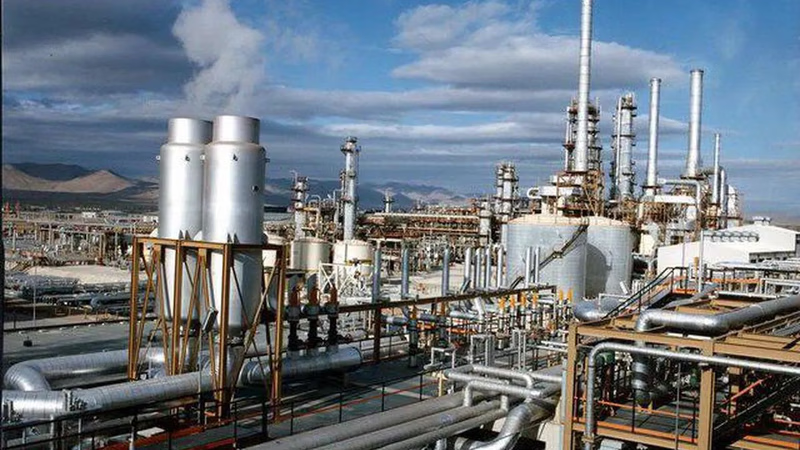
How does the Middle East lead global petroleum trade through B2B platforms?
The petroleum products market in the Middle East remains a cornerstone of global commodity trade due to the region’s vast reserves and strategic location. From engine oil to petroleum coke, the diverse range of products derived from crude oil drives economic activity and cross-border trade throughout West Asia. Engine oil, a key component for vehicular and industrial applications, is traded extensively within the region. Middle Eastern car engine oils are known for their quality, with verified exporters and importers leveraging B2B marketplaces and supply chain solutions to streamline transactions. Engine oil traders and production players in West Asia cater to both domestic and international markets, offering regional product listings on specialized trade platforms.
Base oil, the primary raw material for lubricants, is another significant commodity within Southwest Asia. Brokerage for base oil has flourished due to the increasing demand for industrial lubricants and greases. The Middle East hosts numerous commercial players and manufacturers, making it a hub for base oil production and trade. Verified exporters and regional distributors often access market insights through advertising platforms and business networking opportunities.
Bitumen and asphalt, used for road construction and waterproofing, also play a crucial role in the Middle Eastern trade landscape. West Asia boasts a robust market for these products, with key manufacturers and suppliers dominating sales channels. Petroleum coke, or petcoke, continues to be a valuable fuel and raw material for industrial processes, with pricing and supply chain dynamics influenced by regional demand.
Paraffin, both liquid and solid, is a widely traded petroleum derivative. Intermediaries in West Asia facilitate paraffin trade, addressing demand across multiple industries. As a leading exporter of mineral fuels, mineral oils, and waxes, the Middle East’s petroleum market thrives on efficient trading mechanisms. Platforms like Aritral optimize this trade by offering AI-powered solutions for product listing and direct communication between verified exporters and importers.
-
 Llc \`Chilon Lubricants\` 3 weeks ago
Llc \`Chilon Lubricants\` 3 weeks ago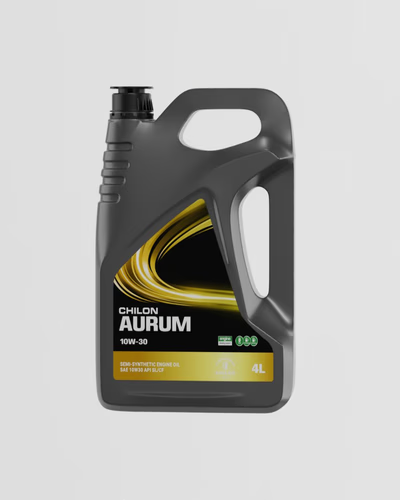 Uzbekistan
High-quality of car engine oils, motor oils and lubricants
Uzbekistan
High-quality of car engine oils, motor oils and lubricants
We specialize in the production of a wide range of high-quality motor oils and lubricants. Our products are designed to meet the needs of various indu...Details
-
 Ali Khazari 4 months ago
Ali Khazari 4 months ago Iran
Supplier
Iran
Supplier
Hello, I am Ali Khazari, a supplier of petrochemical products and petroleum derivatives.Details
-
 Hasan 2 weeks ago
Hasan 2 weeks ago Turkey
Manuscript
Turkey
Manuscript
ManuscriptDetails
-
 Goruh San'ati Mahestan 1 weeks ago
Goruh San'ati Mahestan 1 weeks ago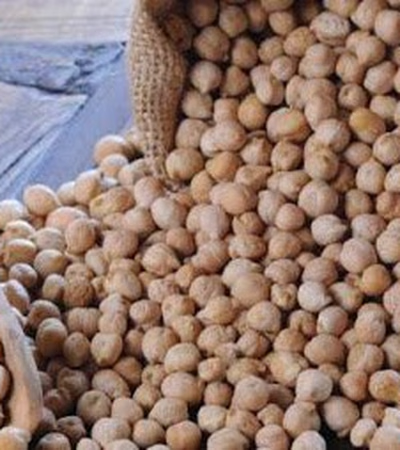 Iran
Petroleum Derivatives, Petrochemical Products, Dried Fruits
Iran
Petroleum Derivatives, Petrochemical Products, Dried Fruits
Direct supply of products from production with international standards, competitive product in the international marketDetails
-
 Hussein 2 weeks ago
Hussein 2 weeks ago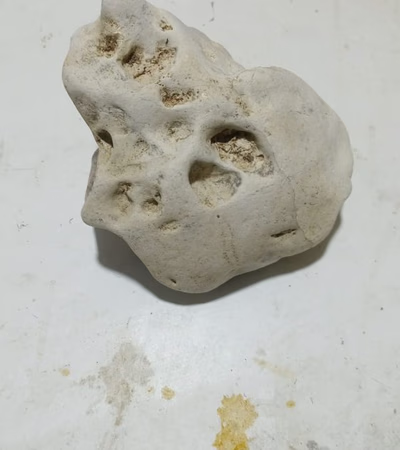 Iraq
Meteor
Iraq
Meteor
MeteorDetails
-
 Hassas Plastik San Ve Tic. A.S. Bursa Turkey 2 weeks ago
Hassas Plastik San Ve Tic. A.S. Bursa Turkey 2 weeks ago Turkey
ABS ER400, ABS MATT
Turkey
ABS ER400, ABS MATT
We are acquiring ABS ER400 - ABS super matte raw material.Details
-
 Bayerol Mh Gmbh 6 months ago
Bayerol Mh Gmbh 6 months ago Germany
Bayerol
Germany
Bayerol
BAYEROL YOUR FIRST CHOICE FOR HIGH QUALITY LUBRICANTS Bayerol MH GmbH is a German company specializing in automotive lubricants. We are a young and m...Details
-

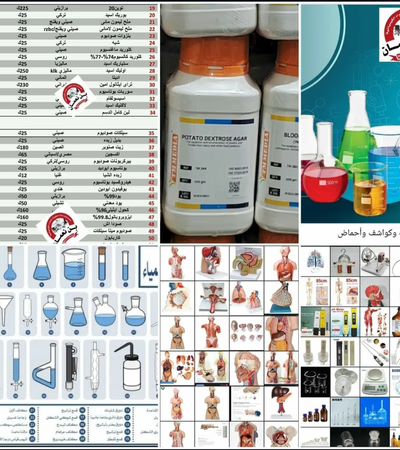 Yemen
Ben Naaman Lamasalizamat Almuamalat Altaalimiyya WalSina'iyya BiAjhizatiha Wamawadiha Alkimiyaiyya
Yemen
Ben Naaman Lamasalizamat Almuamalat Altaalimiyya WalSina'iyya BiAjhizatiha Wamawadiha Alkimiyaiyya
#Everyone has everything related to laboratories: ✅Models in all shapes ✅Tools and experimental devices ✅#Educational_Toys ✅#Glassware ✅#Chemicals ✅#P...Details
-
 Mj Trading 2 weeks ago
Mj Trading 2 weeks ago Bahrain
Base Oil
Bahrain
Base Oil
Superior quality: Refined to perfection to achieve maximum efficiency. High viscosity index: Ensures stable performance at varying temperatures. Excel...Details
-
 Harvesta Ltd 3 weeks ago
Harvesta Ltd 3 weeks ago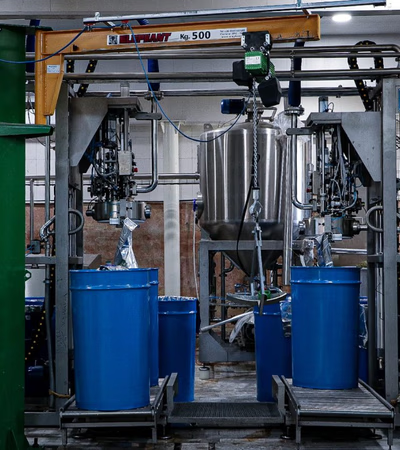 Iraq
Harvestaltd
Iraq
Harvestaltd
Peace be upon you, our products include fruits, vegetables, fish, shrimp, caviar, canned foods, etc.Details
-
Exploring Base Oil Trade in the Middle East and West Asia

Base oil, a fundamental raw material in the production of lubricants such as engine oil, holds significant importance in the Middle Eastern and West Asian commodity trade. Base oil serves as the backbone for various products, including bitumen, paraffin, and petroleum coke, making its trade dynamics critical to regional economic activity. In Southwest Asia, the brokerage of base oil thrives due to a robust network of verified exporters and importers facilitated by B2B marketplaces and trade platforms. These platforms enhance supply chain solutions by enabling direct communication between commercial players and promoting regional product listings. The engine oil market in West Asia underscores the increasing demand for high-quality base oil. The trade trends in this region reflect the growing integration of base oil into broader petroleum-based commodities, such as bitumen and asphalt. Bitumen, essential for road construction, and asphalt are heavily traded in the Middle East, aligning with infrastructure development goals. Similarly, petroleum coke (petcoke), another byproduct, is widely used in industrial applications, with key suppliers and manufacturers concentrated in West Asia.
Paraffin, available in liquid and solid forms, plays a pivotal role in the regional market. Derived from crude oil, its trade is expanding due to its versatile applications, ranging from candle production to industrial coatings. The Middle East and West Asia are evolving into hubs for paraffin intermediaries, further bolstered by efficient supply chain frameworks. Aritral, an AI-powered B2B trade platform, offers verified listings, market insights, and brokerage solutions, supporting commercial players in navigating the complexities of international trade for base oil and related commodities. By leveraging such platforms, businesses gain access to new markets, increased visibility, and streamlined operations in the engine oil and base oil sectors.
-
Bitumen and Asphalt Trade Insights in West Asia

Bitumen, commonly referred to as asphalt, plays a critical role in the commodity trade dynamics of West Asia and the Middle East. Derived from crude oil, bitumen serves as a key material in road construction and industrial applications. The Middle East, known for its rich petroleum reserves, is a significant player in the global bitumen market. The trade of bitumen and related petroleum products, such as base oil, paraffin, and petroleum coke, is facilitated by advanced B2B marketplaces and supply chain solutions. These platforms help verified exporters and importers connect efficiently, ensuring reliable transactions and optimized logistics. In the engine oil sector, bitumen and base oil are integral as raw materials. The demand for engine oil across West Asia has grown due to the region"s expanding automotive industry. B2B trade platforms provide market insights, regional product listings, and direct communication channels, allowing businesses to explore trends in engine oil trade.
Base oil, a primary component of engine oil, also sees robust demand, with its trade dynamics influenced by factors like pricing, quality, and supplier reliability. Petroleum coke, another derivative, is essential for industries such as cement and power generation. Manufacturers and suppliers across West Asia benefit from trade advertising platforms that boost visibility and networking opportunities. Similarly, paraffin, available in both liquid and solid forms, is widely used in packaging, pharmaceuticals, and cosmetics. Its trade in West Asia is supported by intermediaries specializing in regional logistics and market intelligence. Aritral, an AI-driven B2B trade platform, simplifies these transactions by offering tools like product listing, direct communication, and AI-powered marketing. This digital ecosystem enhances transparency, reduces barriers, and fosters growth in the Middle East commodity market. "
-
Engine Oil Trade Dynamics in West Asia and Middle East
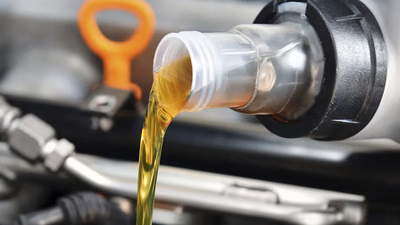
Engine oil, a critical lubricant for automotive and industrial machinery, plays a vital role in ensuring efficient performance and durability. In West Asia and the Middle East, the engine oil market is heavily influenced by regional trade dynamics, with strong ties to the petroleum industry. The trade of base oil—a primary component of engine oil—and its derivatives such as bitumen, paraffin, and petroleum coke, serves as the backbone for many regional import/export activities. West Asia is a hub for engine oil production and distribution, with verified exporters and importers utilizing B2B marketplaces to connect with buyers across Asia. Platforms specializing in commodity trade within the Middle East offer regional product listings and market insights, fostering business networking opportunities. These tools are crucial for understanding the nuances of engine oil quality, pricing, and types, which vary based on viscosity grades and applications in cars, heavy-duty vehicles, and industrial machinery. Base oil, the foundation for manufacturing engine oil, is brokered extensively in Southwest Asia. Key players in the region ensure a steady supply chain for production facilities, with trade advertising platforms promoting transparency and verified transactions.
Similarly, bitumen and petroleum coke markets in West Asia are significant for road construction and industrial energy needs, with competitive pricing influenced by global crude oil trends. Paraffin, another petroleum byproduct, is vital for both solid and liquid applications. Its trade in the Middle East intersects with broader commodity flows, emphasizing the importance of intermediaries who bridge supply-demand gaps. Aritral, an AI-driven B2B platform, simplifies the trade of engine oil and its components, providing services like product listing, AI-powered marketing, and direct communication tools to support global sales. With verified profiles, Aritral fosters trust and efficiency, enabling businesses to capitalize on the robust trade opportunities in West Asia"s oil-based industries. "
-
Paraffin Trade Insights in West Asia and the Middle East
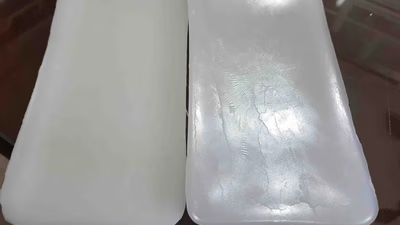
The paraffin trade in West Asia and the Middle East has emerged as a significant commodity market, driven by its diverse applications in industries such as cosmetics, pharmaceuticals, and manufacturing. Paraffin, derived primarily from petroleum, comes in both liquid and solid forms, categorized under types like paraffin wax (HS Code 271290) and paraffin oil (HS Code 271210). West Asia’s extensive petroleum reserves make it a global hub for paraffin production, with verified exporters and importers leveraging regional B2B marketplaces to facilitate trade. Commodity-focused platforms in the Middle East, such as Aritral, have simplified international trade by offering supply chain solutions and verified listings of paraffin products. These platforms enable businesses to access market insights, streamline logistics, and build robust business networks. Liquid paraffin, commonly used in pharmaceuticals, and solid paraffin, prevalent in candle-making and coatings, are highly demanded across Asia. The paraffin market intertwines with other petroleum-based commodities like base oil, bitumen, and petroleum coke. Base oil, a precursor to engine oil, is essential in lubricant production, while bitumen dominates the construction sector.
These interconnected markets benefit from B2B advertising platforms that enhance visibility and trust among regional stakeholders. The rise of AI-driven trade solutions further impacts commodity markets in West Asia, ensuring transparency and efficiency in paraffin and other petroleum derivatives. B2B marketplaces foster direct communication between manufacturers and buyers, promoting high-quality paraffin production and distinguishing premium-grade paraffin from substandard variants. West Asia’s trade landscape continues to evolve, emphasizing the role of verified exporters and importers in shaping global supply chain dynamics. Aritral, as an AI-powered B2B platform, exemplifies how digital tools transform commodity trading in the region, offering services like product listings, marketing insights, and global sales assistance to streamline paraffin and related markets.
-
Petroleum Coke Trade Insights in West Asia

Petroleum coke (Petcoke), a solid carbon-rich material derived from oil refining, plays a vital role in commodity trade across West Asia and the Middle East. The region is a significant producer of petcoke, with its production driven by the abundance of crude oil and advanced refining capacities. Middle Eastern petcoke, also known as petroleum coal, is utilized in industries such as cement, steel, and aluminum, owing to its high calorific value and cost-effectiveness compared to traditional fuels. However, its environmental impact and fluctuating market prices remain challenges. B2B marketplaces in Asia, including platforms like Aritral, are transforming the trade dynamics of petcoke and related commodities such as engine oil, base oil, bitumen, and paraffin. Verified exporters and importers on these platforms provide streamlined supply chain solutions, ensuring reliable and transparent transactions. These trade advertising platforms also offer regional product listings and market insights, enabling businesses to navigate pricing trends and demand fluctuations effectively. The engine oil market, intrinsically linked to base oil, paraffin, and bitumen trade, is similarly impacted by B2B dynamics.
For instance, base oil, a key raw material for engine oil production, sees significant demand in West Asia. Supply chain solutions facilitate its movement across borders, while regional product listings and verified suppliers enhance accessibility. Bitumen and paraffin, essential for construction and industrial applications, also benefit from similar supply chain efficiencies provided by trade platforms. Petroleum coke suppliers in West Asia and petcoke manufacturers in the Middle East are leveraging these platforms to expand their reach. Market insights reveal that West Asia’s production rate of petroleum coke is steadily growing, driven by industrial demand and competitive pricing. As the global commodity trade evolves, businesses must continuously adapt to shifting market dynamics, supported by tools like AI-powered B2B platforms. Aritral offers services such as product listing, direct communication, and AI-powered marketing to enable seamless global trade operations.
-
Middle East Petroleum Products
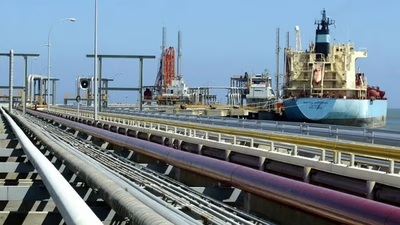
West Asia, particularly the Middle East, is a pivotal region in the global petroleum industry, housing some of the largest oil reserves worldwide. Countries like Saudi Arabia, Iraq, Iran, Kuwait, and the UAE are key players, significantly influencing global oil production and prices through their membership in OPEC. The region"s vast reserves of crude oil contribute to its economic stability and geopolitical dynamics. Beyond traditional fuels, West Asia also produces a range of non-fuel petroleum products, including lubricating oils, asphalt, and petrochemicals, which are essential for various industries. The robust petrochemical sector in the region produces downstream products such as plastics and fertilizers, further diversifying its economic base. Strategic maritime chokepoints like the Strait of Hormuz and Bab el-Mandeb are crucial for global oil transportation, making the region a focal point for international trade. Oil revenues have facilitated infrastructure development and investment across multiple sectors, although they have also led to geopolitical tensions over resource control. Understanding the complexities of West Asia"s petroleum landscape is vital for businesses and stakeholders engaged in the B2B marketplace in Asia, as it shapes trade dynamics and supply chain solutions.
-
What are Petroleum products?
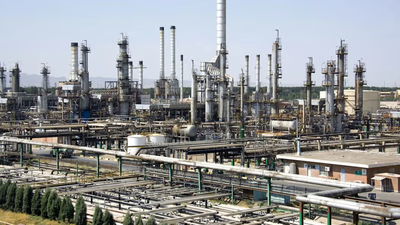
Petroleum products are derived from crude oil through a complex refining process that begins with laboratory evaluation. The distillation of crude oil in a refinery separates it into various cuts, which may require further processing to enhance their quality. Common petroleum products include gasoline, diesel fuel, jet fuel, heating oil, and liquefied petroleum gas (LPG). Each product serves specific purposes, such as fueling vehicles, heating homes, and powering aircraft. Additionally, petroleum-based lubricants reduce friction in machinery, while asphalt is essential for road construction. The versatility of petroleum extends to the production of petrochemicals, which are vital in manufacturing plastics, synthetic fibers, and various chemicals used across industries. With over 6,000 petroleum products identified, their significance in daily life is profound, impacting everything from transportation to household cleaning products. Understanding the intricacies of petroleum refining and its products is crucial for stakeholders in the Middle East trade platform and B2B marketplaces in Asia, as these insights can drive better supply chain solutions and business networking opportunities.
-
Trading Petroleum Products in the Middle East
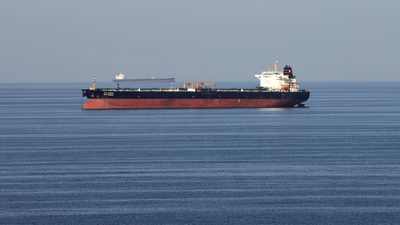
Trading petroleum products is crucial for West Asia"s economy, with key exporters like Saudi Arabia, Iraq, Iran, Kuwait, and the UAE dominating the global oil market. The region"s extensive oil infrastructure, including refineries, export terminals, and major ports like Ras Tanura and Kharg Island, supports the trade of crude oil, refined products, and petrochemicals. West Asia is also a significant player in the petrochemical trade, exporting a variety of products used in manufacturing, agriculture, and construction. Regional cooperation, exemplified by the Gulf Cooperation Council (GCC), enhances trade and investment in the oil sector. However, market volatility due to geopolitical tensions and economic conditions can impact trading activities. The Middle East"s strategic geographical location facilitates exports to growing markets, while national companies leverage competitive advantages for successful market penetration. Trade partnerships extend globally, with exports reaching Asia, Europe, North America, and Africa through long-term contracts and spot sales. Pricing of petroleum products is influenced by global market dynamics, supply and demand, and geopolitical developments, with agreements often factoring in quality and transportation costs."
-
Export of Petroleum Products in Different Ways
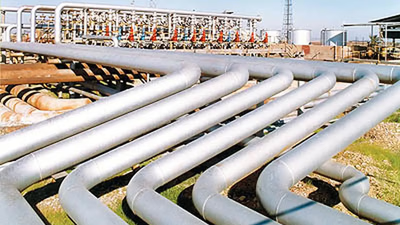
The export of petroleum products from the Middle East plays a crucial role in meeting the demands of neighboring countries and enhancing economic growth. By leveraging diverse oil reserves and effective operational mechanisms, exporters can cater to various market needs, ensuring customer satisfaction and financial returns. Thorough market research is essential to identify target markets, understand pricing trends, and analyze competitors. Developing a strong brand identity and implementing effective marketing strategies, both online and offline, can significantly raise awareness and promote product quality. Establishing a robust distribution network and optimizing supply chain management are vital for timely delivery and cost efficiency. Building strong relationships with customers, including oil traders and petrochemical companies, is key to understanding their evolving needs. Tailoring products to meet specific market requirements enhances competitiveness. Choosing appropriate market entry strategies, ensuring compliance with international regulations, and developing effective pricing strategies are crucial for successful exports.
Continuous exploration of new markets and diversification of product offerings can lead to growth opportunities. Collaborating with industry associations and attending networking events can provide valuable insights and partnerships. Overall, a strategic approach to the export of petroleum products can foster long-term relationships and contribute to economic development in the region.





















